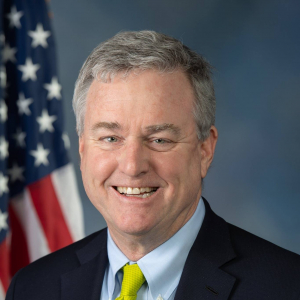It’s co-sponsored by Representative David Trone. 
Washington DC (KM) A bill to increase global cooperation in the fight against trafficking in synthetic drugs such as fentanyl was passed unanimously on Wednesday by the US House of Representatives..
It’s co-sponsored by 6th District Representative David Trone (D-Md), who addressed the House about that legislation on Tuesday. . “My nephew, Ian Trone, died four years ago from a fentanyl overdose at the age of 24,” he said. “And since his passing, we’ve seen a dramatic and alarming increase in fentanyl and other synthetic opioid deaths in our country.”
Trone said there were nearly 71,000 overdose deaths in the United States, which is the highest number ever recorded. He says that reverses the decrease in overdose deaths in 2018. “Why do we see a spike last year,” he asked. “Because fentanyl is showing up in more and more parts of the United States. Mixed with heroin and meth and cocaine, fentanyl is causing accidental deaths. We know that fentanyl is 50 to 100 times stronger than morphine.”
He said Maryland is also experiencing increases in overdose deaths. “In Maryland, fentanyl was involved in 93% of all opioid-related deaths for the first six months of 2020,” said Trone. “And fentanyl-involved deaths were up 12% in the second quarter compared to the same time last year.”
The legislation is called Fighting Emerging Narcotics Through Additional Nations to Yield Lasting (FENTANYL) Results Act. It calls for increased cooperation in the fight against trafficking of synthetic drugs such as fentanyl. The bill authorizes two programs through the State Department to build foreign law enforcement capacity to detect synthetic drugs, and carry out international exchange program for drug demand reduction experts.
Trone said the US and other nations need to cooperate in battling this epidemic. “We need to act if we’re going to put an end to these senseless deaths,” he said “We cannot do it alone.”
The other co-sponsor is Representative Michael McCaul (R-Tex.)
The bill now moves to the US Senate.
By Kevin McManus